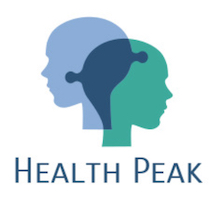What Are Neurological Disorders in Children?
A neurological disorder is any symptom-producing disorder caused by problems in the brain or nervous system. All these disorders involve the brain, spinal column, or nerves in some way. Some may worsen over time, while others present the same symptoms throughout life. Neurological disorders in children can be diagnosed at any time of life, from birth through to the later teen years.
How Do Neurological Disorders in Children Develop?
Neurological disorders in children may develop for a wide range of reasons. A large number of these conditions are present before birth or occur as a result of birth complications. For example, if a newborn infant’s oxygen is restricted during birthing, they may develop a disorder.
Problems that are present at or before birth are known as congenital. They may derive from abnormalities in the genes, chromosomes, metabolism, or in the formation of individual organs. They can often be diagnosed either at birth or shortly afterwards.
When neurological disorders arise during fetal development, these are called prenatal. The reason can be genetic or environmental. Some people are predisposed toward certain types of disorders from a very early age.
Neurological disorders can also be acquired as a result of trauma – for example, an accident or injury. The more serious a trauma and the earlier in life it is encountered, the more likely a neurological disorder might develop. Prompt treatment is essential. Disorders affecting the brain, nerves, and spine can also begin in childhood.
More rarely, neurological disorders might occur as a secondary response to infection or other diseases that affect brain function. They can also happen due to body systems being compromised in other ways, such as through the ingestion of dangerous substances.
Treatment of Neurological Disorders in Children
Neurological disorders generally cannot be cured. However, with appropriate treatment, their symptoms can be managed. In some cases, symptoms are completely controlled and present no or very little day to day difficulty. However, symptoms can be moderate or severe.
Ongoing care and accommodations may be necessary for children to develop in a healthy way once a neurological disorder appears. Not all neurological disorders involve learning disabilities, but many do. Others include symptoms that may make certain aspects of school challenging.
The brain is extremely resilient. As it grows and changes, it can sometimes compensate for damage and support fuller neurological function over time. However, it is important to get an accurate diagnosis and to understand the long-term prognosis of any neurological disorder.
Children with neurological disorders should be evaluated periodically to monitor for changes in their condition. Generally, these are noticed by testing children on various dimensions, such as coordination or spatial reasoning, which may be inhibited by the disorder. Occupational therapy, which involves the manipulation of objects and the environment, may be used to help young children develop necessary skills for planning and carrying out tasks. Speech therapy can also be helpful for children who have difficulty acquiring language skills or producing language due to a neurological disorder.
Symptoms of Neurological Disorders in Children
Each neurological disorder is different and presents different symptoms. Physical, cognitive, emotional, or behavioral symptoms may be visible. Children may miss key developmental milestones or have developmental difficulties. They might experience changes in personality, mood, thinking, and behavior – and these could be sudden or frightening.
No matter the case, finding appropriate care is essential for long-term well-being. The first step is diagnosis by experts who understand the causes and course of treatment for childhood neurological disorders.
Contact us to discuss to discuss your specific case.

